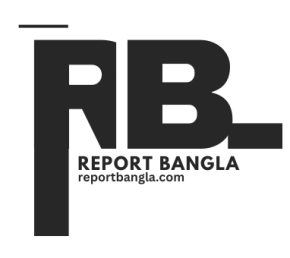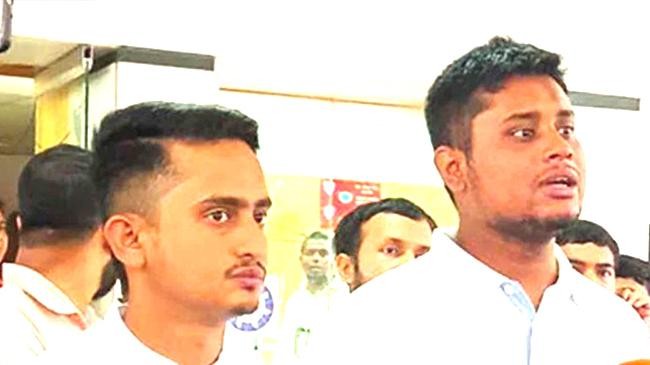Meeting with Army Chief: Sarjis disagrees with Hasnat’s statement
Jatiya Nagorik Party (JNAP) Chief Organizer (North) Sarjis Alam has disagreed with some parts of the statement made by the party’s Chief Organizer (South) Hasnat Abdullah regarding the March 11 meeting with Army Chief General Waqar-uz-Zaman. He referred to the ‘refined Awami League’ issue as an opinion, not a proposal. In a post on his verified Facebook page at 12:12 pm today (March 23), Sarjis wrote, ‘The way Hasnat heard and accepted the Army Chief’s statement that day and wrote on Facebook, there is some difference from my point of view.’
The Army Headquarters admitted in a statement to Netra News that General Waqar had met Hasnat and Sarjis at the Dhaka Cantonment on March 11. However, the Army described Hasnat’s statement as a ‘ridiculous and immature story’. According to a report by Netra News, the army also called Hasnat’s post ‘a complete political stunt’.
Meanwhile, Sarjis said in his post, ‘I personally feel that the conversation was not as extreme as the tone conveyed in Hasnat’s Facebook post. Of course, the conversation was definitely more clear and confident than on any other day.’
He also said, ‘A refined Awami League needs to participate in the elections for the stability of the country — this opinion has been expressed clearly and directly.’
Sarjis said at the beginning of his Facebook post, ‘That day (March 11) Hasnat and I went to talk to the army chief. Another important member of the party was supposed to join us but he could not come due to personal reasons.’
He also wrote, ‘Let me be clear at the beginning — we were not called to the cantonment that day. Rather, we would exchange messages with the Army Chief’s military advisor for any queries or clarifications, if necessary.’
‘When the Army Chief made a rather strong statement on the anniversary of the Pillakhana massacre (February 26), I asked his military advisor if he felt anything unusual or worrisome on their part. I said that the Army Chief’s statement seemed relatively clear and strong.’
Sarjis further writes, ‘In response, he (the military advisor) asked me, ‘Do you want to discuss this directly?’ I said, ‘We can’. In continuation of this, we met the Army Chief that day. There were only three of us in the designated room in the Army Bhavan — the Army Chief, Hasnat and I.’
‘As humans, different people observe and interpret a person’s opinion in different ways. From my perspective, I do not see the statement that day as a direct ‘suggestion’, but rather as a ‘clear expression of opinion,’’ Sarjis writes.
He further said, there is a difference between ‘expressing an opinion’ and ‘making a proposal’. However, the army chief spoke more clearly that day than before.
‘Regarding the ‘pressure’ for a refined Awami League, I did not see it as applying pressure. Rather, he was confidently saying that if there is no refined Awami League, there will be long-term problems in the country’s situation and among political parties,’ he further said.
Sarjis said that other issues mentioned in Hasnat Abdullah’s speech — such as the role of Saber Hossain, Shirin Sharmin Chowdhury and Sohel Taj — were also discussed in the meeting.
He said that whether the Awami League will return, what will happen if it participates in the elections, what will happen if it does not — these were discussed. When the party can return if it boycotts the elections, whether it will return at all — these issues were also discussed.
‘What impact these equations can have on the country, what level of stability or instability can be created — these were discussed,’ Sarjis wrote.
Regarding a specific conversation mentioned by Hasnat, Sarjis acknowledged that it had taken place, but clarified that it had taken place outside, not inside the meeting room, after the formal discussions had concluded.
“The conversation took place before getting into the car, while we were standing to say goodbye,” he added.
Sarjis rejected the idea of portraying the situation as a personal conflict. “I see no reason to say ‘Hasnat vs. Waqar.’ Hasnat’s position is different, and Army Chief Waqar-uz-Zaman’s position is also different.
“It is never relevant to pit the Bangladesh Army against the National Citizen Party, other political parties or the people.”
He denied his party’s involvement in some of the claims, saying, “There are talks of the army chief resigning in some places, that is not our position.”
Then Sarjis expressed his broader thoughts on political contact with the army, saying that during the interim government, it was normal for representatives of various political parties to be in contact with the Bangladesh Army about the overall situation in the country — and they did so secretly.
He believes that even if there were disagreements about what was discussed with the army chief, the matter could have been handled internally.
“We could have discussed them in detail in our party forum, taken decisions and implemented activities accordingly,” he said.
Or, they could have consulted with other political parties to form a unified position and then taken to the streets — as they are doing now, against any form of Awami League. Even if the other parties did not agree, they could have tried to achieve this demand independently as a party.





